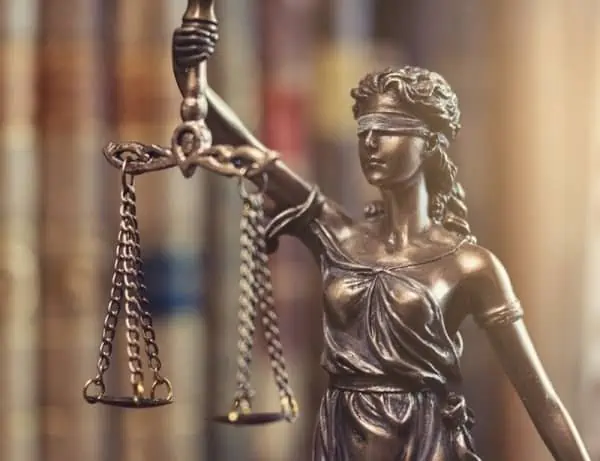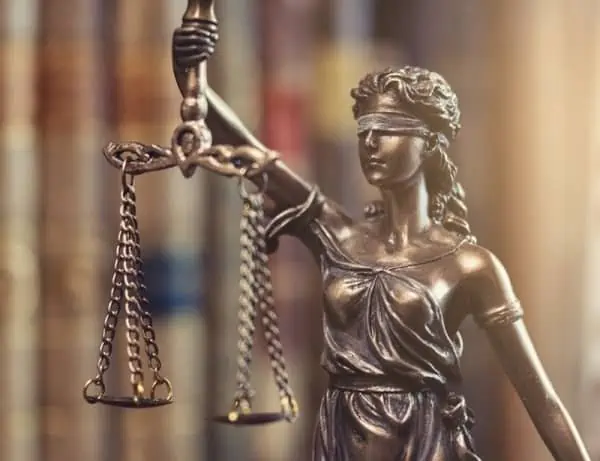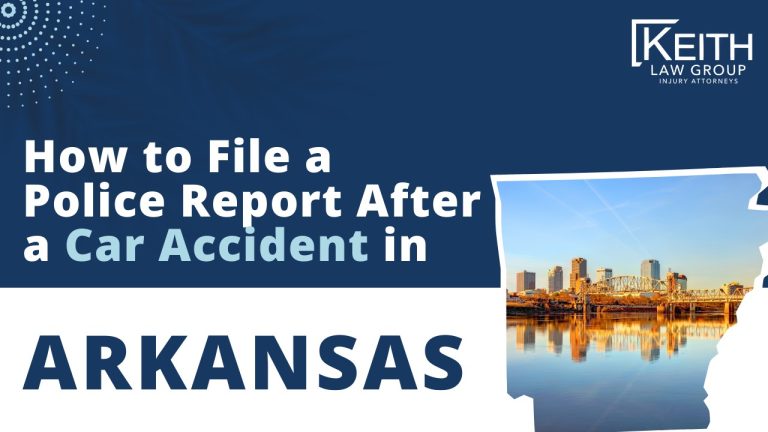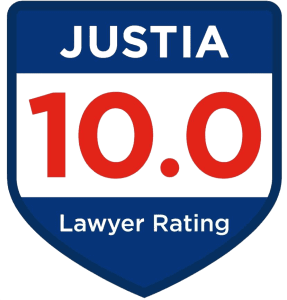- Published: June 19th, 2023
- Last Updated: July 14th, 2025

Attorney Sean T. Keith has been a personal injury lawyer for 30+ years, a nationally recognized Top 100 Trial Lawyer, and top car accident lawyer & motor vehicle accident lawyer in Arkansas.
Legally Reviewed
This article has been written and reviewed for legal accuracy and clarity by the team of writers and attorneys at Keith Law Group and is as accurate as possible. This content should not be taken as legal advice from an attorney. If you would like to learn more about our owner and experienced injury lawyer, Sean T. Keith, you can do so here.
Fact-Checked
Keith Law Group does everything possible to make sure the information in this article is up to date and accurate. If you need specific legal advice about your case, contact us. This article should not be taken as advice from an attorney.
Sean Keith's Accollades & Practice Areas He Specializes In
- Over $20 Million recovered in Medical Device Injury Lawsuits.
- Over $13 Million recovered in Car Accident Lawsuits and other Motor Vehicle Accident Lawsuits.
- Over $100 Million recovered in total on behalf of clients.
- Sean represents clients in cases involving personal injuries, car accidents, motorcycle accidents, truck accidents, wrongful death, slip and falls, nursing home abuse cases, nursing home elopement cases, and more.
Introducing The Steps to Take After A Car Accident in Arkansas
Did you know that even a common car accident such as a fender-bender, can have significant legal, insurance, and financial responsibility implications in Arkansas?
It’s crucial to be well-informed about the steps to take after a car accident or collision damage, as it ensures a smooth recovery process for everyone involved, including roadside assistance and automatic coverage.

In this guide, we’ll walk you through the essential actions to take following a fender bender or accident in Arkansas, keeping in mind the specific laws and regulations.
From dealing with market parts to understanding your rights, roadside assistance, your car insurance rates, and automobile insurance, this comprehensive guide has got you covered.
So buckle up, and let’s dive right in!
Table of Contents
Ensuring Safety and Reporting the Accident: Calling the Arkansas Police
Assessing Injuries and Moving to Safety
After a fender bender car accident, your priority should be ensuring everyone’s safety and assessing collision damage, before contacting automobile insurance and a tow truck if necessary.
Keep the following three (3) steps in mind directly after an accident occurs:
- Accident checklist: After an auto accident, assess yourself and passengers for any pain or visible injuries before calling a tow truck for repair.
- Turn on hazard lights: Make your automobile visible to other drivers, prevent further accidents, and potentially reduce car insurance repair costs with proper coverage.
- Move to safety: If possible, after an auto accident, move your automobile out of the roadway to a safe location as part of your accident checklist and car insurance requirements.
Remember, don’t put yourself in danger while trying to help others with repair or recovery.
If you’re unable to move or assist someone, wait for professional help or consult an attorney if there’s a fault involved.
When to Call 911 or Non-Emergency Police Line
Knowing when to call the appropriate number is essential:
Call 911 if:
- There are severe injuries or fatalities
- The accident involves a hit-and-run driver
- An automobile driver appears intoxicated or under the influence of drugs, potentially affecting coverage and fault determination by the insurance company.
Call non-emergency police line if:
- The automobile accident resulted in minor damages with no serious injuries, and the fault was quickly determined for repair coverage.
- All parties involved have exchanged information
Legal Requirement for Reporting Accidents
In Arkansas, it’s legally required to report certain types of automobile accidents for coverage and repair purposes to the respective insurance company:
Call law enforcement immediately if:
- The accident caused injury, death, or property damage exceeding $1,000, requiring coverage and repair from Luna company.
- A driver is uninsured
If you’re unsure whether you need to report an accident for coverage, it’s better to err on the side of caution and call law enforcement anyway.
Filing an Accident Report in Arkansas
Filing an accident report is crucial for insurance coverage purposes, repair costs, and legal protection.
Follow these four (4) steps to keep your insurance company informed:
- Obtain necessary information from all parties involved:
- Names, addresses, phone numbers
- Driver’s license numbers
- License plate numbers
- Insurance company names and policy numbers
- Take photos of the scene (if safe):
- Vehicle damages
- Road conditions and traffic signs
- Injuries sustained, if any
- Gather witness information:
- Names, contact information, and statements from any witnesses present
- File an accident report with the Arkansas State Police within 30 days of the incident for coverage purposes with your insurance company:
- You can obtain a coverage form online or at your local law enforcement office from your insurance company.
Tips for Dealing with Law Enforcement
When interacting with the police and your company after an accident, remember to:
- Remain calm and respectful
- Provide accurate information about the incident
- Avoid admitting fault or discussing details of the accident with other parties involved, including the company
By following these steps after a car accident in Arkansas, you’ll ensure everyone’s safety, meet legal requirements for reporting accidents, and properly inform your company.
Exchanging Crucial Information: Insurance, Contact Details, and Arkansas Authorities
Gather Driver’s License, Registration, and Insurance Info
After a car accident, one of the first things you should do is exchange crucial information with the other driver’s insurer and their company.
This includes:
- Driver’s license
- Vehicle registration
- Insurance card
Make sure to take photos or write down the details of each company document for future reference.
Collect Witnesses’ Contact Details
If there are any witnesses to the accident, it’s essential to collect their contact information as well.
This can be helpful when filing an auto insurance claim with the company or if any legal disputes arise call the police later on.
Be sure to gather the following contact information from any witnesses present:
- Name
- Phone number
- Email address (if available)
Notify Relevant Authorities
In Arkansas, like in many states, it is your responsibility to notify relevant authorities and your insurance company after a car accident.
Depending on the severity of the crash and whether there are injuries involved or minor accident, you may need to contact:
- Local police department
- Emergency medical services (if necessary)
- Department of Motor Vehicles (DMV)
Roadside Assistance and Financial Responsibility
When exchanging car insurance claim information with another driver after an accident in Arkansas, it’s essential to know that all drivers must carry proof of financial responsibility – usually through auto insurance coverage provided by their company.
Roadside assistance may also be available through your insurance company or a third-party provider like AAA.
Check your policy or membership details for specifics.
Contacting Your Insurance Company
After gathering all necessary information from those involved in the crash, make a phone call to your insurance company as soon as possible.
They will guide you through the process of a car accident check filing an auto insurance claim and let you know what steps need to be taken next.
Seeking Legal Help If Needed
Depending on the circumstances surrounding your car accident – such as severe injuries or significant property damage – it might be wise to consult with an attorney who specializes in personal injury or auto accident cases involving company two vehicles involved.
They can help you navigate the complex legal system and ensure your rights are protected.
In Summary
Exchanging crucial information after a car accident in Arkansas involves the other driver’s insurance company call:
- Gathering driver’s license, registration, and insurance info
- Collecting contact details of witnesses
- Notifying relevant company authorities like the police department, emergency medical services (if necessary), and DMV
Remember to contact your insurance company to file an auto insurance claim and seek legal help if needed.
By following these steps, you’ll be better prepared to handle the aftermath of a car accident and protect yourself from potential financial burdens or legal disputes.
Documenting and Collecting Evidence for Arkansas Police
Take Photos of the Accident Scene
After a car accident, it’s crucial to document and collect evidence for the police report and to call your insurance company.
One of the first things you should do is take photos of the whole at fault accident scene.
This includes:
- The location and surroundings
- Vehicle damages
- Any injuries sustained by involved parties
These pictures can be taken with a smartphone or camera for your company.
If possible, capture different angles and distances to provide a comprehensive view of the incident.
Record Statements from Involved Parties & Witnesses
Another essential aspect of documenting a car accident for your driver’s insurance company, is obtaining statements from those involved in the crash and any witnesses present at the time.
To do this:
- Approach each person calmly and respectfully.
- Ask for their account of what happened.
- Use your phone or another recording device to record their statement (with their permission).
- Jot down their contact information in case further clarification is needed later on.
Having these recorded statements can help law enforcement piece together an accurate picture of what occurred during the collision.
Keep Track of Medical Treatments & Expenses
Lastly, it’s vital to keep detailed records of any medical treatments received as a result of injuries sustained in the car accident.
This includes:
- Doctor visits
- Prescriptions
- Physical therapy sessions
- Medical equipment costs (e.g., crutches, braces)
In addition to tracking expenses, make sure to document your recovery progress with notes on pain levels, mobility improvements, and any setbacks experienced along the way.
To stay organized, consider using an app or spreadsheet specifically designed for tracking medical expenses and treatment progress.
Submitting Your Evidence to Arkansas Police
Once you’ve collected all necessary evidence – photos, recordings, witness contact information, and medical records – it’s time to submit everything to your local law enforcement department.
Here are some tips for submitting your documentation effectively:
- Make copies of all physical documents and save digital files in multiple locations (e.g., cloud storage, external hard drive).
- Contact the police department to inquire about their preferred method for receiving evidence (e.g., email, in-person drop-off).
- Include a brief write-up summarizing the incident and listing any witnesses or involved parties.
- Keep a record of your submission, including the date it was sent and the name of the officer you spoke with.
By following these guidelines and thoroughly documenting your car accident, you’ll provide law enforcement with valuable information that can help them create an accurate police report.
This can ultimately assist you in navigating insurance claims or legal proceedings related to the collision.
Remember, taking these steps after a car accident not only benefits you but also helps ensure that everyone involved receives fair treatment under Arkansas law.
So be proactive, stay organized, and keep track of every detail – it could make all the difference in your case!
Understanding the Claims Process: Initiating, Evaluating, and Fair Settlement Practices in Arkansas
Filing an Insurance Claim
After a car accident in Arkansas, it’s essential to file a claim with your insurance company.
Here are the four (4) steps to follow when filing an auto insurance claim:
- Contact your insurance agent or company as soon as possible after the accident.
- Provide all necessary information about the incident, such as date, time, location, and parties involved.
- Describe any damages or injuries sustained during the accident.
- Submit any relevant documentation like police reports, medical records, and photographs of damages.
Remember: Promptly filing a claim helps ensure that you receive fair compensation for your losses.
Role of Adjusters in Evaluating Claims
Insurance adjusters play a crucial role in the claims process.
Their responsibilities include:
- Investigating the accident to determine fault
- Assessing property damage and personal injury claims
- Identifying potential fraud or misrepresentation
- Negotiating settlements with policyholders or their legal representatives
Adjusters work on behalf of insurance companies but must adhere to state regulations when evaluating claims.
Negotiating Settlements for Fair Compensation
Negotiating fair compensation can be challenging, but understanding how settlements are determined can help you navigate this process effectively:
- Appraisal: An adjuster will assess the value of damaged property (like vehicles) using various methods such as market research or consulting with experts.
- Medical Expenses: Injuries sustained during an accident may require ongoing treatment; therefore, it’s essential to keep detailed records of all medical expenses related to your recovery.
- Lost Wages: If you’re unable to work due to injuries from the accident, lost wages should be factored into your settlement amount.
- Pain and Suffering: This aspect of compensation is more subjective but may include emotional distress caused by physical injuries or other impacts on your quality of life.
Tip: Consult with a legal professional to ensure that you receive fair compensation for all aspects of your insurance claim process.
Managing Your Arkansas Insurance Policy Online: Updates, Payments, and Partner Information
Updating Personal Information After an Accident
After a minor car accident somewhere, it’s essential to update your personal information with your car insurance company.
Here’s how to do it online:
- Log in to your account on the insurance company’s website.
- Locate the “Personal Information” or “Profile” section.
- Update relevant details such as address, phone number, or email address.
It’s also crucial to inform your insurer about any changes in your vehicle or driving habits that may affect your insurance rates.
Making Online Payments & Accessing Policy Documents
Paying for auto insurance and accessing policy documents is easy with online platforms like Allstate Insurance.
Follow these steps:
- Log in to your account on the insurer’s website.
- Navigate to the “Payments” or “Billing” section.
- Set up automatic payments or make a one-time payment using a credit card, debit card, or bank account.
To access policy documents:
- Log in to your account on the insurer’s website.
- Go to the “Policy Documents” or “My Policies” section.
- Download or print relevant documents such as declarations pages and proof of insurance cards.
Adding or Removing Drivers from Your Policy
You can add new drivers or remove existing ones from your automobile insurance policy by following these three (3) steps:
- Log in to your account on the car insurance company’s website.
- Find the “Drivers” or “Add/Remove Driver” section within your policy service options.
- Add a new driver by entering their name, date of birth, license number, and other required information.
To remove a driver:
- Locate their name within the list of covered drivers under your policy limits
- Select “Remove Driver.”
Remember that adding young drivers may increase insurance rates while removing them could result in lower premiums.
Key Takeaways: Arkansas Auto Insurance Policy Management
- Update personal information with your car insurance company after an accident.
- Pay for auto insurance and access policy documents online.
- Add or remove drivers from your policy to ensure proper coverage and accurate rates.
By managing your Arkansas insurance policy online, you can save time and stay up-to-date with any changes that may affect your coverage.
Plus, it’s easier to keep track of important policy numbers and partner information.
So go ahead, take control of your auto insurance by utilizing the convenience of online platforms like Allstate Insurance.
Handling Special Cases in Arkansas: Hit-and-run Accidents and Legal Action Considerations
Steps to follow if you’re a hit-and-run victim
Being a hit-and-run victim can be stressful, but it’s crucial to stay calm and follow these five (5) steps:
- Stay at the scene: Don’t chase the fleeing driver. It’s dangerous and doesn’t guarantee catching them.
- Call 911: Report the accident immediately, providing as much information as possible about the other vehicle.
- Gather evidence: Take photos of collision damage, skid marks, and any debris left by the other vehicle.
- Talk to witnesses: Get contact information from anyone who saw the accident or can provide details about the fleeing vehicle.
- File a police report: This is essential for insurance claims and potential legal action later on.
Seeking legal counsel when necessary
In some cases, seeking legal counsel after a hit-and-run accident may be necessary:
- To help navigate insurance claims
- To ensure proper compensation for damages
- To assist in locating the at-fault driver
- To guide through potential lawsuits
A knowledgeable attorney can help protect your rights under state law while pursuing justice for your case.
Statute of limitations for filing lawsuits
Arkansas has specific time limits for filing lawsuits related to car accidents:
- For personal injury cases: You have three (3) years from the date of injury to file a lawsuit (Arkansas Code § 16-56-105).
- For property damage cases: You have three (3) years from the date of damage to file a lawsuit (Arkansas Code § 16-56-105).
It’s important not to wait too long before taking legal action because once these deadlines pass, you may lose your right to pursue compensation.
However, it’s important to remember that these are just general guidelines and can vary on a case by case basis.
You should contact an experienced car accident lawyer to discuss the specifics of your case – they will be able to offer better guidance after discussing the details of your accident with you.
Navigating Post-Accident Steps Successfully for a Smooth Recovery
To wrap it up, after a car serious accident occurred in Arkansas, it’s crucial to ensure everyone’s safety and promptly report the incident.
Swap essential info with other parties involved, like your own insurance, details and contact information.
Don’t forget to collect evidence for the authorities by snapping photos and taking notes.
Familiarize yourself with the claims process in Arkansas, from initiation to evaluation and fair settlements.
Keep tabs on your insurance policy online to make updates or payments as needed.
Special cases like hit-and-runs require extra attention – consider legal action if necessary.
Stay safe on the road and be prepared for any bumps along the way by knowing these steps inside out.
Now you’re ready to handle any post-accident situation like a pro!
Frequently Asked Questions
-
How do I report a car accident in Arkansas?
In Arkansas, call 911 immediately after an accident involving injury, death, or significant property damage.
For minor accidents without injuries, you can contact local law enforcement agencies directly.
-
What kind of evidence should I collect at the scene of an accident?
Take photos of vehicle damages, skid marks on the road, weather conditions, and any injuries sustained by those involved.
Collect names and contact information of witnesses and note down important details about the incident.
-
How long do I have to file an insurance claim after an accident in Arkansas?
Arkansas law requires that you notify your insurer within a reasonable time frame after an accident – typically within days or weeks of the event.
It’s best to start this process as soon as possible.
-
What should I do if I'm involved in a hit-and-run accident in Arkansas?
Immediately call 911 or local law enforcement agencies to report the incident.
Provide them with all available information about the fleeing vehicle (license plate number, make/model/color) and the direction it was heading.
Your insurance company should also contact information insurance company should be notified.
-
When should I consider taking legal action after a car accident in Arkansas?
If you’re facing significant medical bills, lost wages, or other damages due to the accident, consulting with an attorney can help determine if pursuing legal action is in your best interest.
This may be especially relevant in cases involving hit-and-runs or disputes over liability.
All Posts for the Car Accident Lawsuit Legal Guide
Practice Areas
- 3M Earplug
- Belviq
- Bladder Sling
- Camp Lejeune Water Contamination
- Defective Medical Device
- Hernia Mesh
- Hip Replacement
- NEC Infant Formula
- Medtronic Insulin Pump
- Paraquat
- Philips CPAP
- Roundup
- Talcum Powder
- Tylenol Autism & ADHD
- Zantac
- Bicycle Accidents
- Boat Accidents
- Construction Accidents
- Dog Bite
- Drug Injuries
- Electric Shock Injuries
- Nursing Home Abuse
- Nursing Home Bedsore
- Nursing Home Falls
- Nursing Home Infection
- Nursing Home Sexual Abuse
- Personal Injuries
- Premises Liability
- Slip and Fall
- Traumatic Brain Injuries
- Wrongful Death
- 3M Earplug
- Belviq
- Bladder Sling
- Camp Lejeune Water Contamination
- Defective Medical Device
- Hernia Mesh
- Hip Replacement
- NEC Infant Formula
- Medtronic Insulin Pump
- Paraquat
- Philips CPAP
- Roundup
- Talcum Powder
- Tylenol Autism & ADHD
- Zantac
- Bicycle Accidents
- Boat Accidents
- Construction Accidents
- Dog Bite
- Drug Injuries
- Electric Shock Injuries
- Nursing Home Abuse
- Nursing Home Bedsore
- Nursing Home Falls
- Nursing Home Infection
- Nursing Home Sexual Abuse
- Personal Injuries
- Premises Liability
- Slip and Fall
- Traumatic Brain Injuries
- Wrongful Death
You pay
Nothing
unless we win
Do You Have A Case?
Recent Legal Posts & Articles
Recent Legal Guides

Choose Us For Your Personal Injury Case
- Available 24/7
- No Upfront Fees
- Free Case Evaluation
- No Fees Unless We Win!

